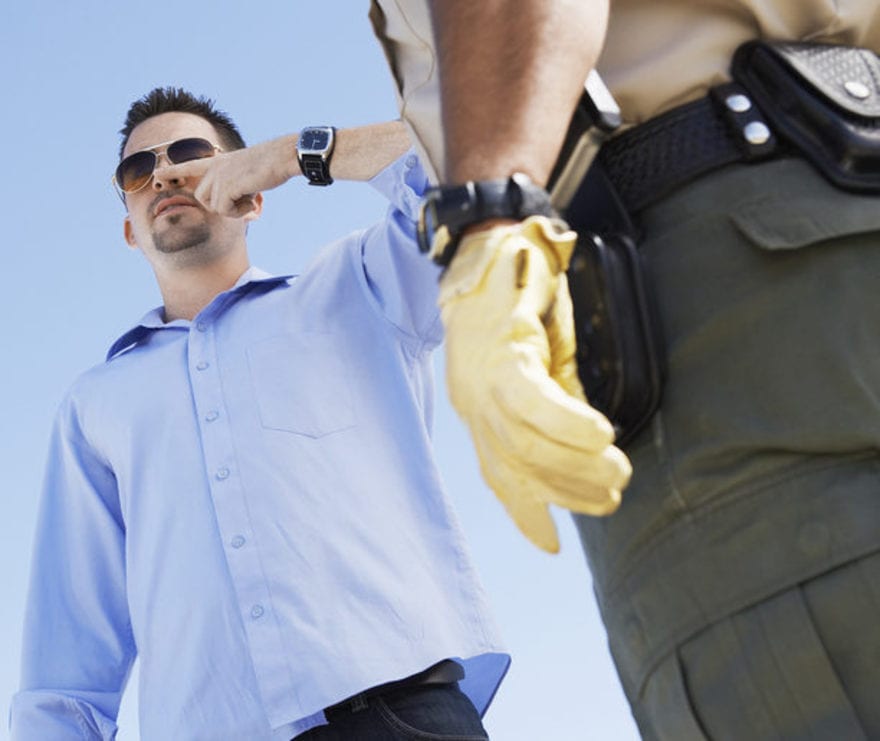
A TYPICAL DWI ARREST WILL USUALLY INVOLVE THE USE OF DWI FIELD SOBRIETY TESTS.
In order for a police officer to require an individual to submit to DWI field sobriety tests, the officer must have observed something that lead to a reasonable suspicion that the person was driving or operating a motor vehicle under the influence of alcohol or a controlled substance.
If alcohol impairment is suspected, a police officer will almost always ask the driver if she has been drinking tonight. A “yes” answer to this question allows the officer to legally expand the traffic stop and to request the driver submit to DWI field sobriety tests.
Other observations of bloodshot and water eyes, slurred speech or an odor of alcohol from the driver’s breath may also be enough to request DWI field sobriety tests.
A DRIVER’S PERFORMANCE ON THE DWI FIELD SOBRIETY TESTS WILL DETERMINE WHETHER THE POLICE OFFICER HAS PROBABLE CAUSE TO ARREST THE DRIVER FOR SUSPICION OF DWI.
The officer will look for a number of different cues depending on the type of DWI field sobriety tests the officer administered. Just as important, an officer also observes a driver’s ability to listen and follow instructions almost as much as the person’s ability to perform the DWI field sobriety tests. The officer will make note if the driver has to ask for the instructions to be repeated or begins the DWI field sobriety tests before the officer finishes the instructions.
It is important to follow the officers instructions as closely as possible when requested to perform DWI field sobriety tests.
THE MOST COMMON TYPES OF DWI FIELD SOBRIETY TESTS ARE KNOWN AS THE ONE-LEG STAND, WALK-AND-TURN, AND HORIZONTAL GAZE NYSTAGMS OR HGN.
A preliminary breath test, or PBT, is also commonly used to develop probable cause for a DWI arrest. The officer is not required to request a certain number of type of DWI field sobriety tests. Given a number of circumstances – such as the time of day or night, weather and road conditions, driver’s physical condition, etc. – the officer may request only one type of DWI field sobriety test. In these cases, probable cause for the arrest should be closely scrutinized.
Whenever an officer has a driver to submit to DWI field sobriety tests, the officer is required to complete detailed DWI reports that document the driver’s performance on the chosen test.
It is important to get copies of these reports and review the officer’s assessment. If the officer’s squad car was equipped with a video or audio recording device, it is also important to get copies of the recordings to see whether they support the officer’s report.
If you have been arrested for a DWI, it is important that you contact an experienced Minnesota DWI lawyer as soon as possible.
Our experienced Minneapolis / St. Paul DWI lawyers will review all aspects of your DWI case, including your performance on the DWI field sobriety tests.
If you successfully passed the DWI field sobriety tests, our DWI lawyers will fight to have your DWI case dismissed.



